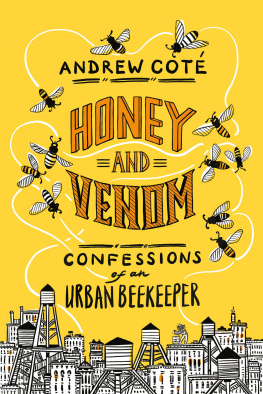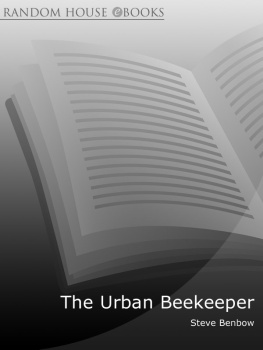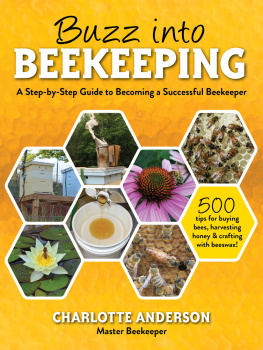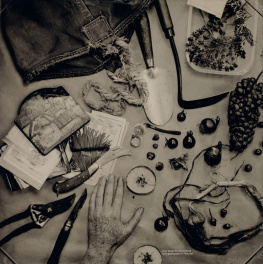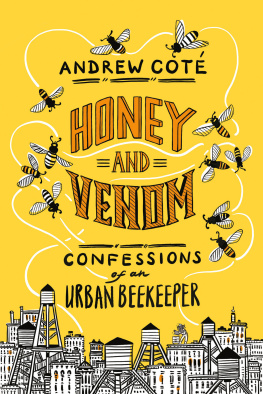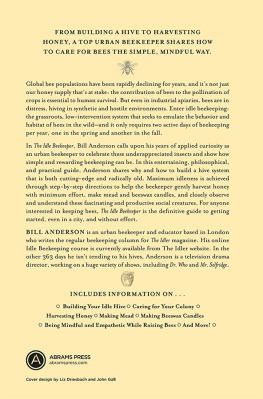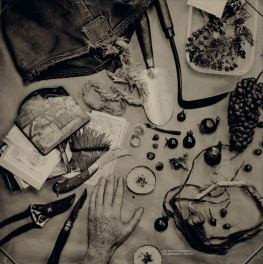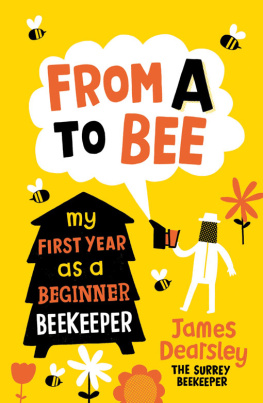Andrew Coté - Honey and venom : confessions of an urban beekeeper
Here you can read online Andrew Coté - Honey and venom : confessions of an urban beekeeper full text of the book (entire story) in english for free. Download pdf and epub, get meaning, cover and reviews about this ebook. year: 2020, genre: Home and family. Description of the work, (preface) as well as reviews are available. Best literature library LitArk.com created for fans of good reading and offers a wide selection of genres:
Romance novel
Science fiction
Adventure
Detective
Science
History
Home and family
Prose
Art
Politics
Computer
Non-fiction
Religion
Business
Children
Humor
Choose a favorite category and find really read worthwhile books. Enjoy immersion in the world of imagination, feel the emotions of the characters or learn something new for yourself, make an fascinating discovery.
- Book:Honey and venom : confessions of an urban beekeeper
- Author:
- Genre:
- Year:2020
- Rating:3 / 5
- Favourites:Add to favourites
- Your mark:
- 60
- 1
- 2
- 3
- 4
- 5
Honey and venom : confessions of an urban beekeeper: summary, description and annotation
We offer to read an annotation, description, summary or preface (depends on what the author of the book "Honey and venom : confessions of an urban beekeeper" wrote himself). If you haven't found the necessary information about the book — write in the comments, we will try to find it.
Andrew Coté: author's other books
Who wrote Honey and venom : confessions of an urban beekeeper? Find out the surname, the name of the author of the book and a list of all author's works by series.
Honey and venom : confessions of an urban beekeeper — read online for free the complete book (whole text) full work
Below is the text of the book, divided by pages. System saving the place of the last page read, allows you to conveniently read the book "Honey and venom : confessions of an urban beekeeper" online for free, without having to search again every time where you left off. Put a bookmark, and you can go to the page where you finished reading at any time.
Font size:
Interval:
Bookmark:
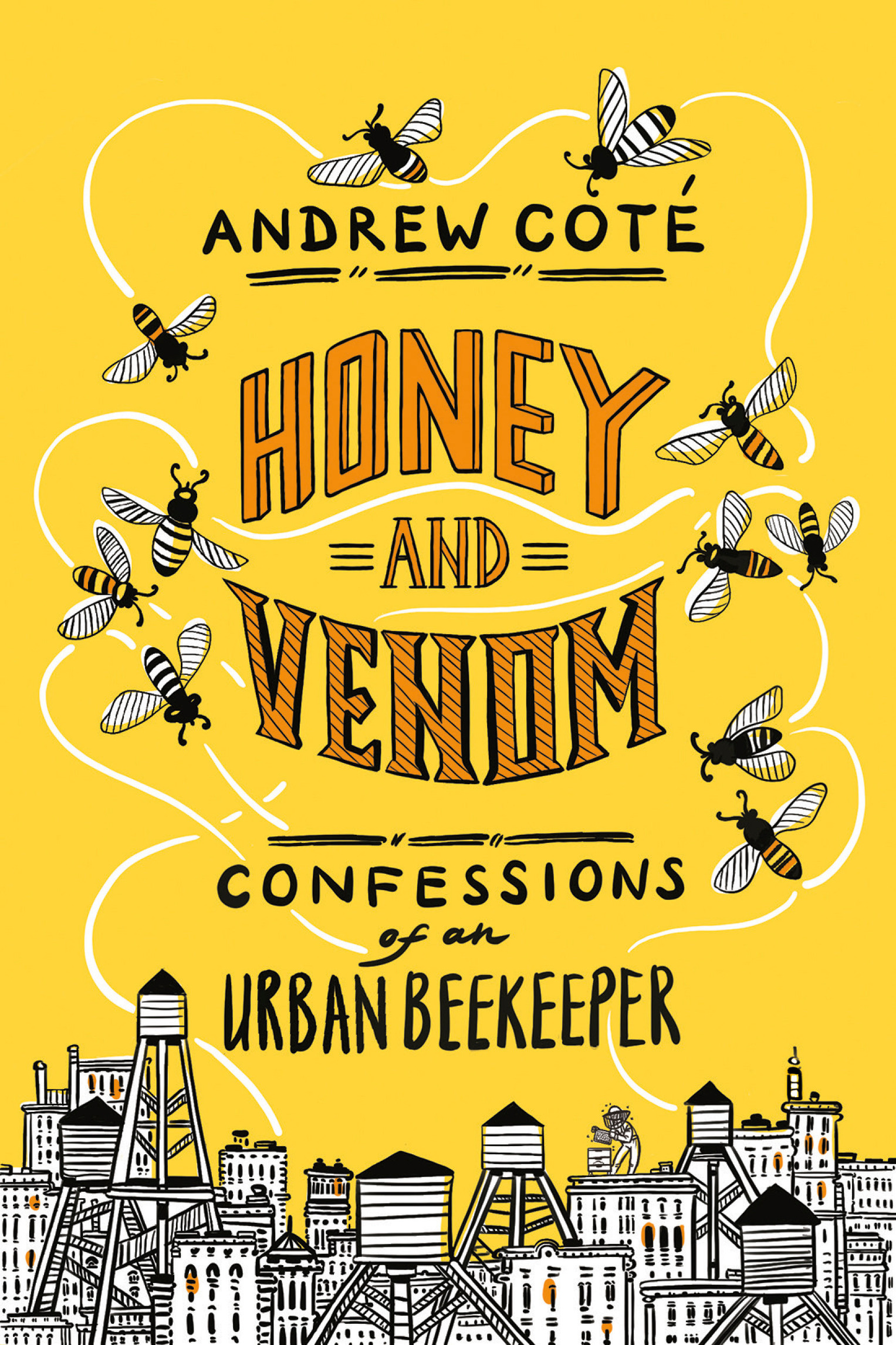
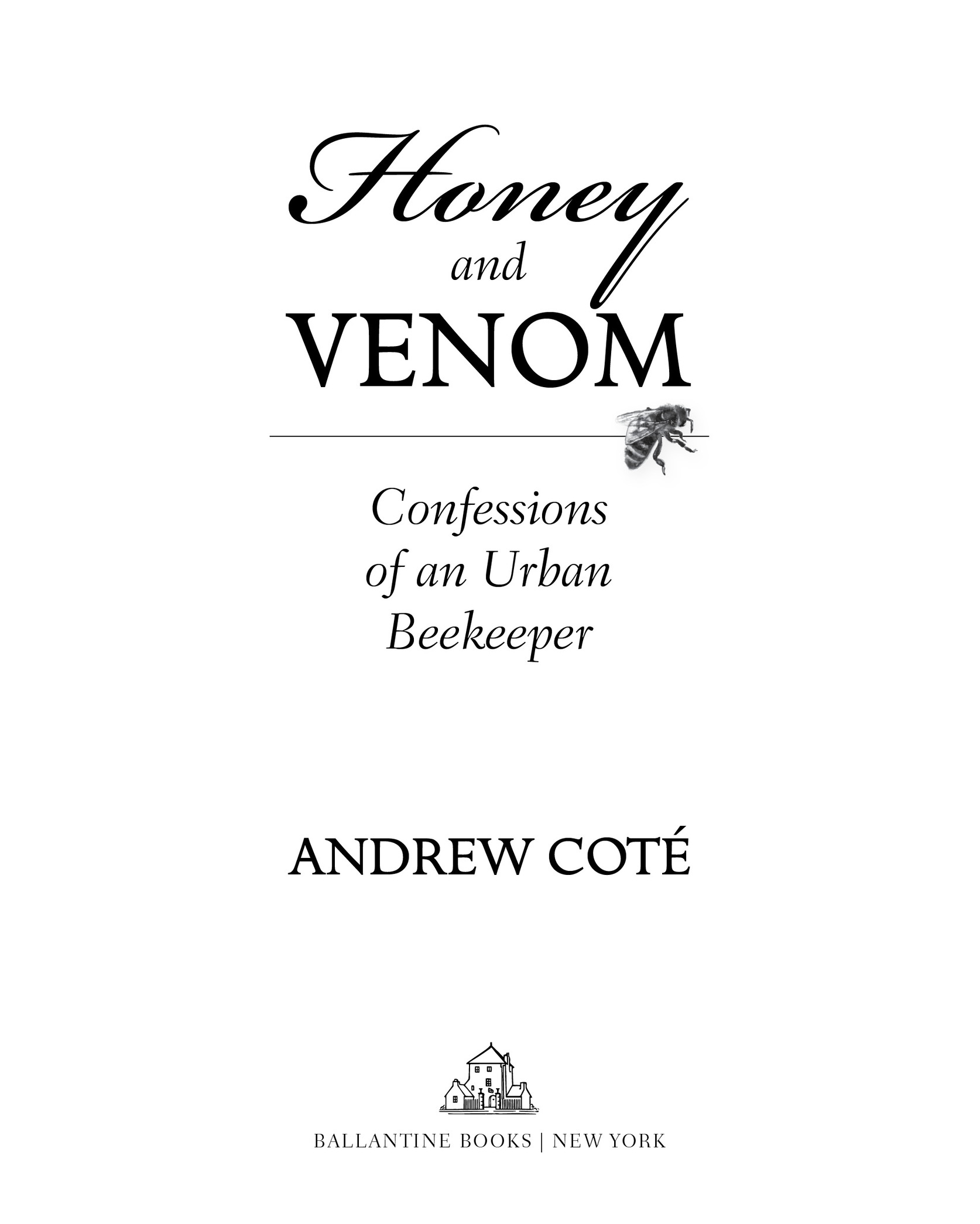
Copyright 2020 by Andrew Cot
All rights reserved.
Published in the United States by Ballantine Books, an imprint of Random House, a division of Penguin Random House LLC, New York.
B ALLANTINE and the H OUSE colophon are registered trademarks of Penguin Random House LLC.
Hardback ISBN9781524799045
Ebook ISBN9781524799052
randomhousebooks.com
Book design by Susan Turner, adapted for ebook
Cover design and illustration: Natalya Balnova
ep_prh_5.5.0_c0_r2
Handle a book as a bee does a flower, extract its sweetness but do not damage it.
J OHN M UIR (18381914)
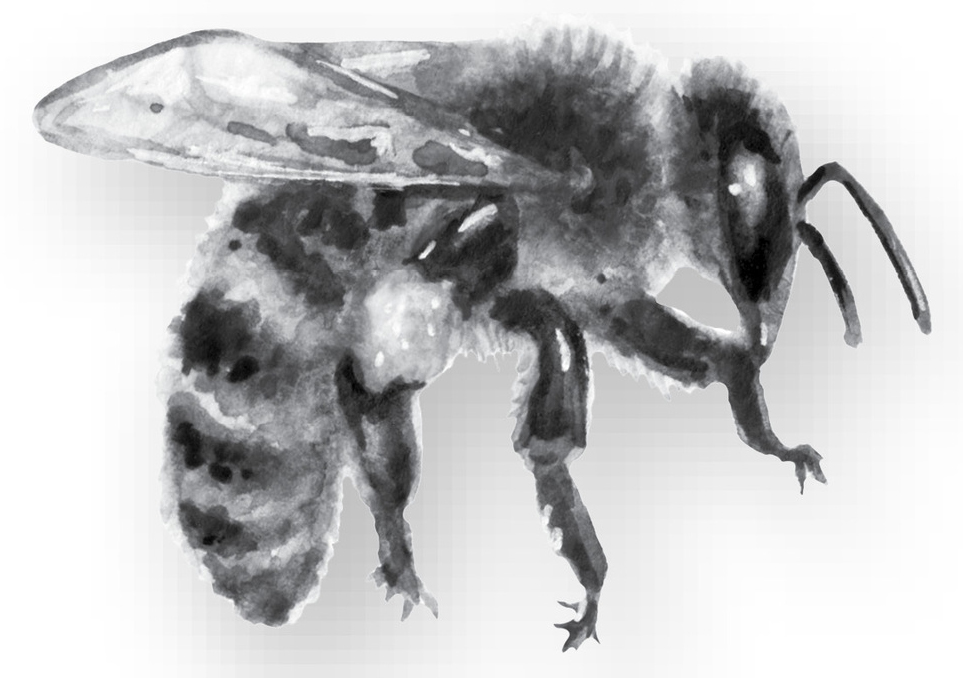
I bleed honey. It runs deep in my veins.
I am a fourth-generation beekeeper, intimately familiar with the world of honey bees and the aberrations of those who maintain them.
Early on, I honed my craft as a beekeeper on the array of hives that surrounded my boyhood home in Fairfield County, Connecticut. But today, aside from my apiaries in the suburbs and countryside surrounding Gotham, my turf includes skyscrapers, community gardens, ancient cemeteries, international territory, and other hidden pockets of New York City. My apiaries top, or have topped, some of New Yorks most iconic buildings and locales, from the Museum of Modern Art to the Waldorf Astoria. My bees buzz above the lawn of the United Nations and the cemeteries of Green-Wood in Brooklyn, Woodlawn in the Bronx, and St. Patricks Old Cathedral down on Little Italys Mulberry Street. They preside atop Industry City in Sunset Park and flitter over a ballet school near the Flatiron. They hover and dart above churches and synagogues, secondary schools and restaurants. The apiary I installed and tend above the seventy-second floor of a hotel near Central Park is the highest in the world, though admittedly not the most productive. While it is certainly a thrill for me to work with these industrious, extra-high-flying honey bees at such lofty altitudes, I love working with those at ground level just as muchalthough I do envy the spectacular views of the city dwellers. All of these bees serve restaurants, grocery stores, my own honey stand, and, of course, first and foremost, themselves.
Beekeepingand for beeks like me, urban beekeepingis a passion for those who practice it. Worldwide, more and more people are drawn to this bewitching and satisfyingly messy work for environmental and conservation reasons, for the joy of producing something on their own, and because honey is, well, delicious.
One thing I love about beekeeping is how it brings people together in combinations one could not otherwise imagine. Because of it, Ive cultivated the most unexpected acquaintances and friendships both close to home and abroad. Ive worked with Parisian beekeeper Marie Laure Legroux on hives that have been on the grounds of the Luxembourg Gardens since 1856 (though Marie has not been there quite so long), and others with Nicolas Geant atop the Grand Palais des Champs-lyses and Notre-Dame (the three atop Notre-Dame, it should be noted, survived the tragic fire that gutted the building in 2019). Ive harvested from log hives in rural Samburuland in Kenya, helped prepare bees for overwintering in small Moldovan villages, relocated apiaries in immediate post-earthquake Port-au-Prince, Haiti, and helped Fijian beekeepers increase their profitability through targeted marketing of honey to honeymooners. Friendships were often forged along with those endeavors, many of which continue to this day.
Thoreau says that keeping bees is like directing sunbeams. Cupid supposedly dipped his arrows in honey before he set them flying. My favorite may be the words of Victor Hugo, who wrote Life is the flower for which love is the honey. I think the Frenchman was onto something there. I adore these magical little creaturesfrom my rusticating hives in the countryside to their cosmopolitan cousins atop Manhattan high-rises. I love my bees and I love how I came to be a beekeeper.
I learned beekeeping from my father, Norm, who is distinctly humble and soft-spoken. A wiry fellow who as of this writing is in the latter portion of his eighth decade, he was a navy man poised on a ship off the coast of Cuba during the Cuban missile crisis. After his days on the water dried up, he turned to fire, serving for more than three decades as a lieutenant in the Norwalk fire department. In the days following the attacks of 9/11, he was part of a dogged rescue and recovery team digging fruitlessly in the pile of rubble that was once the World Trade Center. But like many men of action, Norms manner is calm, patient, and distinctive.
His mother, Aldea, grew up on a farm with honey bees in Quebec, where she, along with her siblings and father, managed colonies of the nectar-gathering empresses of the sky. When she moved to the United States, she left the bees and the farm behind, giving rise to a brief period of dormancy for beekeeping in our lineage until Norm picked up the batonor the bee smoker and hive tool. Whatever else we are, both my brother, Mike, and I are also now beekeepers, as are my brothers children; I hope mine will be as well. Through our charity, a 501(c)(3), Bees Without Borders, my father and I have traveled the world as a team carrying on the family tradition, teaching, listening, and working with bees while navigating our own modest bee business at home. And beekeeping for the beekeeper is a lot like it is for the honey bees themselves, or at least can be. Overlapping generations working together. Cooperative brood care. Division of labor. Mutual love of honey. We all have a lot in common.
In New York City, a place where passion and competition abound, there were only a couple of dozen beehives registered when beekeeping became legal in 2010 (although many more went unregistered). About a decade later, there are hundreds of registered beehives in the city with an estimated hundreds more unregistered. While most, myself included, would say that more beehives is a good thing, the zeal for beekeeping has led to a situation that any New Yorker, bee enthusiast or not, will find unsurprising: The business of beekeeping can be cutthroat. Many would correctly describe the act of beekeeping itself as humbling, serene, instructive, and even meditative. But it can also be rife with rivalries and animosity, turf wars and hostile takeovers. Sheepishly, I confess to oncebut happily no longerbeing among the most guilty of those megalomaniacs; theres only so much real estate for the bees, and theres a finite supply of nectar where I practice the ancient art. At long last the bees have taught me humility. Still, from time to time there are conflicts. The honey of a crowded hive is defended by a thousand stings. Or, at least, so say the Olney Hymns.
For all the competition, occasional bouts of unpleasantness, and stingsfrom bees and humans alikethere are many things I very much enjoy about being part of an urban beekeeping community. Living in Manhattan, Ive had occasional brushes with celebrities, which are nearly always exciting and good fodder for storieslike the time I met and had a friendly chat with Denzel Washington, or when Natalie Portman walked off smiling, clutching a jar of my whipped honey. Aziz Ansari, the world-famous comedian, saw no shame in pragmatically bargaining five dollars off his purchase, and it was exciting when Uma Thurman, herself a beekeeper at the time, bought one of our honeycombs.
Font size:
Interval:
Bookmark:
Similar books «Honey and venom : confessions of an urban beekeeper»
Look at similar books to Honey and venom : confessions of an urban beekeeper. We have selected literature similar in name and meaning in the hope of providing readers with more options to find new, interesting, not yet read works.
Discussion, reviews of the book Honey and venom : confessions of an urban beekeeper and just readers' own opinions. Leave your comments, write what you think about the work, its meaning or the main characters. Specify what exactly you liked and what you didn't like, and why you think so.

